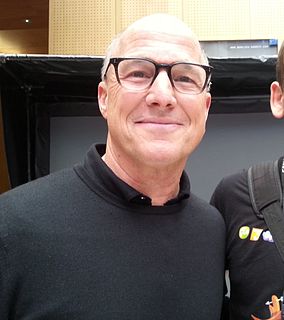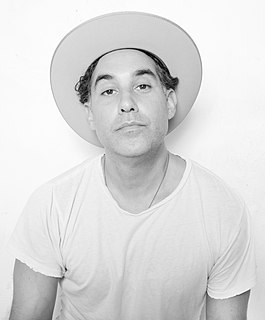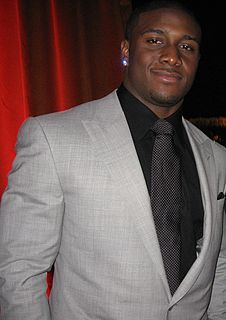A Quote by Chris Brown
I have a creative mind, so if I listen to the song, I have an idea, I thought of five or six months ago, I'll bring it back into the playing field. I can tweak ideas or make them better. Just come up with something and then we go from there.
Related Quotes
Ideas are floating like fish. Desire for an idea is like a bait on a hook. If you desire an idea, it pulls and it makes a kind of a bait. Ideas will come swimming up. And you don't know them until they enter the conscious mind. And then bingo! There it is! You know it instantly. And then more come in. If you go fishing for ideas, a lot of ideas will just pop in. And one of them will make you fall in love.
Looking back six years ago when I had just come from 'The Office' to 'The Mindy Project' and what I was trying to say back then. I feel like we don't revisit our younger idealistic selves, you just get in this pattern of churning these episodes out. Now I was like, "Let's try and get in my mind back then," because my life personally has changed so much, too. I just thought, "What was I trying to say? And now can I make it look like it was all part of one larger story."
Today the patent office is obsolete. You just take whatever you do, tool up, and start production for six months. At the end of the six months you put the data on all the computer inputs all over the world and you got your business. You can make all your money, and then people can steal it, but by then it doesn't matter because you've made the money up front and you avoid wasting money in lawsuits. [My father] had all these kinds of ideas years ahead of others.
If we have come up with a creative decision and somebody comes up with another idea, you do have to get into the depths of it and ask: "Is it a better idea? Or is it a different idea?" That can be hard. But that's the type of conversation the director and I will have, or as part of our creative groups. So with that in mind, it's hard to keep a budget in line. It's like in life, if you've ever built anything for the first time you're usually better at it the second time.
The creative person wants to be a know-it-all. He wants to know about all kinds of things-ancient history, nineteenth century mathematics, current manufacturing techniques, hog futures. Because he never knows when these ideas might come together to form a new idea. It may happen six minutes later, or six months, or six years. But he has faith that it will happen.
One of my central philosophies is to be creatively driven so I have to be extraordinarily creative in the way I get things done and I have to be really flexible. Striving for the best creativity can be a really moving target if you're trying to budget anything because if you come up with a better idea for something and it's going to make the movie stronger then you have to do it. And that's what I do. The difficulty is that you have to use more judgement as a producer then you might in other places. I have to make unbelievably great creative decisions.
Separate out the creative act from the act of editing and execution. Make it a two-step process. First, let ideas flow and encourage EVERY idea to make it to the whiteboard. Don't criticize, judge, edit, budget, or worry. An idea on the wall can't hurt anyone, so let them rip without restriction. After any and all ideas have the opportunity to "come out to play", only then should you apply your analytical and logical side to the effort. Don't mix the creative process with the editing process or you'll kill your ideas before they even get a fighting chance.
I'm so used to artists saying to me, "Listen, I'm going to have five pages done next week," and then three weeks later I'm phoning them, begging them for two pages. And Stuart [Immonen]is a guy who will promise you five pages and deliver six pages, and the six pages are even better than you could have ever imagined.
I started writing songs so late and I had so many day jobs - jobs just to pay the bills. So, when I started doing this, I said, "I'm never gonna do anything to corrupt this. Never try to "sell it." Never gonna do anything to make this a job." I can go five months without writing a song. Then something will happen and I'll write six songs in a week.
I don't really look at other people's moves because, when I'm on the field, I'm not going to remember them. It's just something that has a lot to do with instinct and vision and all those running back aspects you have. You put them all into a basket, and you just use them on the field and go out there and make plays.


































